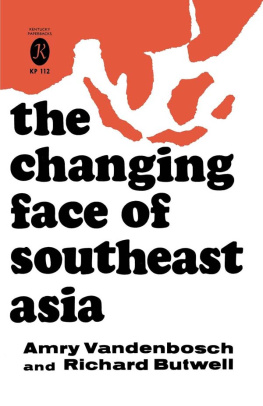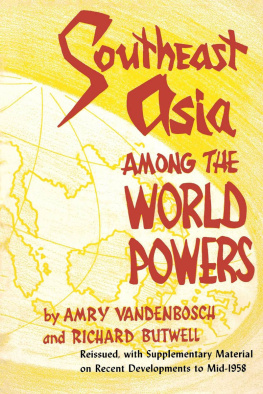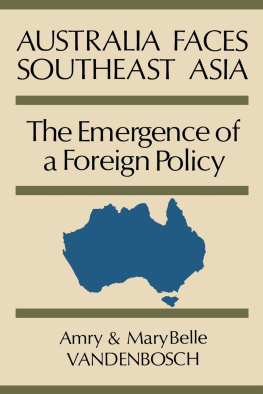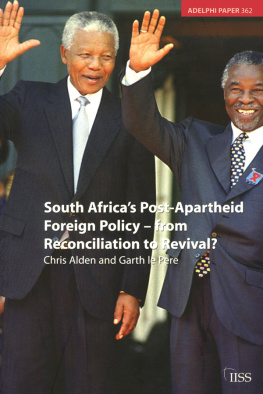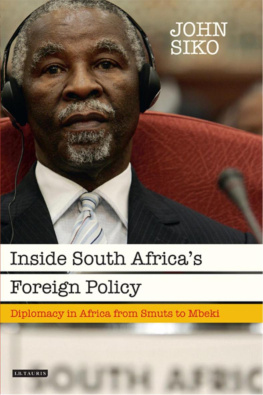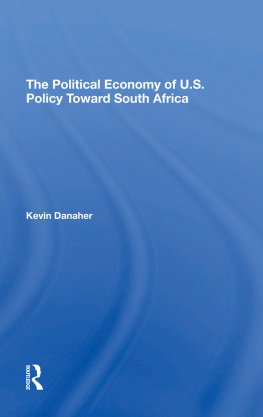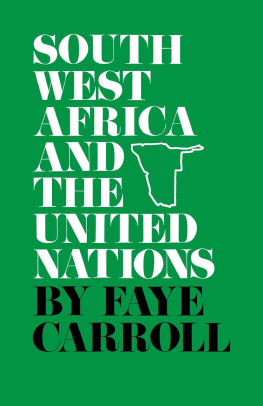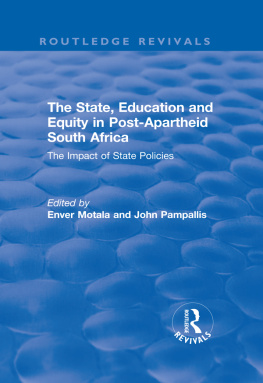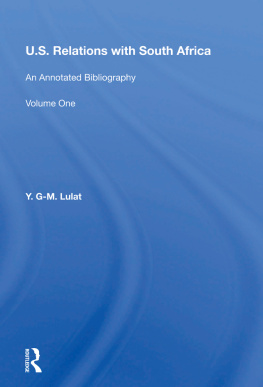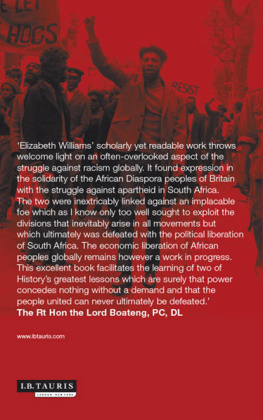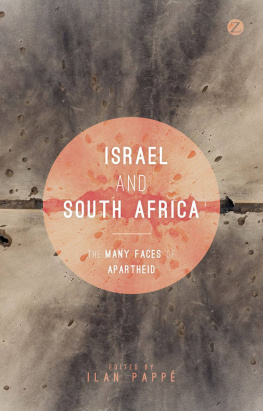SOUTH AFRICA AND THE WORLD
The Union of South Africa stands alone today in the whole world. They may be a brave people, they may decide to stand firm, but they stand alone, isolated in a kind of moral wilderness, against the whole-hearted opposition of the whole world.
Sir Claude Corea (Ceylon), Meeting of the United Nations Security Council, April 1, 1960
It is nothing short of a tragedy that the word apartheid has become one of the ugliest swear words in the world.
DIE BURGER (Cape Town), April 21, 1961
The race policies of the Government are like an octopus and its tentacles stretch into every corner of our life, and one cannot discuss any subject for very long without touching one of those tentacles. The plain fact is that, whether we like it or not, apartheid (or any other name you like to use) as practised by this Government is anathema to the rest of the world.
Hon. S. F. Waterson, House of Assembly, South African Parliament, February 2, 1965

SOUTH AFRICA and the WORLD
The Foreign Policy of Apartheid
Amry Vandenbosch
THE UNIVERSITY PRESS OF KENTUCKY
Standard Book Number 8131-1223-0
Library of Congress Catalog Card Number 76-111516
Copyright 1970 by The University Press of Kentucky
A statewide cooperative scholarly publishing agency serving Berea College, Centre College of Kentucky, Eastern Kentucky University, Kentucky State College, Morehead State University, Murray State University, University of Kentucky, University of Louisville, and Western Kentucky University.
Editorial and Sales Offices:
Lexington, Kentucky 40506
Preface
Among the very large number of books that have been written on South Africa during the last two decades, there has not yet appeared a serious and systematic study of South Africas foreign relations. Judging by the preoccupation of the United Nations with South African issues, one might conclude that the Republic of South Africa is the worlds foremost problem. And in a sense that is true since the conflict revolves around two of the chief issues of the mid-twentieth-century worldrace relations and colonialism. While I share the views of many critics of apartheid, I am not unaware of the difficult situation in which the South African whites find themselves.
I gratefully acknowledge indebtedness to the Social Science Research Council and the University of Kentuckys Research Fund for grants which enabled me to spend some time in London and to visit South Africa and neighboring countries, and to my wife, for generous and indispensable help.
Contents
PART
I
Background 16521910
From Tavern of the Seas to British Dominion
South Africa may be situated in an outlying corner of the world but it has been an important factor in world politics for more than three centuries. The antecedents of the Republic of South Africa go back to the planting of a colony by the Dutch East India Company on Table Bay at the Cape of Good Hope in 1652. Long before the establishment of Cape Town, Dutch and English ships had stopped with increasing regularity at the Cape to break the long voyage to and from the East and to take on a supply of fresh water. Agents of the English East India Company made a move to take possession of Table Bay in 1620, but the act was repudiated by King James. The directors of the Dutch East India Company became convinced that the establishment of a post at the Cape was highly desirable for economic and strategic reasons. Ships engaged in the Eastern trade could break their long voyage there, and take on water, vegetables, and fresh meat, while a small fort at this strategic point would afford Dutch ships that were engaged in the Eastern trade protection against the Portuguese and Spanish enemies. In the closing months of 1651 an expedition composed of three ships was sent to the Cape to establish a post. Thus were laid the foundations of the present Republic of South Africa.
The composition of the colony reflected something of the political situation in Europe at the time. In 16881689 some two hundred Huguenot exiles joined the colony. Though they constituted at the time only about a sixth of the total population, they were important to the community. Socially and economically they were more advanced than the Dutch settlers. Since they were refugees and could not return to their native land they undoubtedly contributed to the development of an independent, nationalist spirit of the colonists. They were of the same religious faith as the Dutch, so they were easily assimilated. There was also a sprinkling of Germans among the colonists.
The European colony at the Cape was important not only as a halfway house to the East; it was by far the best pointpractically the only feasible onefrom which the temperate inland plateau could be reached. Better harbors on the west coast lacked fresh water, while the very good harbor of Delagoa Bay was swampy and malarial and infested with the deadly tsetse fly. As a leading historian of South Africa puts it, the Cape was the best training-ground for South African colonization. Cape Town was surrounded by fertile valleys; the natives were so few and weak as to offer no great resistance. The colonists were irresistibly attracted inland, just as the European colonists in North America were drawn westward.
This popular movement to the interior largely determined the history of southern Africa for nearly two centuries. As they advanced eastward and northward, the Boer trekkers (boer is simply the Dutch word for farmer, but it came to be applied especially to the Dutch settlers in South Africa; trekker is the Dutch word for migrant or pioneer) met the Bantus moving southward under pressure from tribes farther north. The Bantu were so numerous that the Boers could not drive them back nor destroy them. Moreover, the Bantu were useful in operating the huge farms of the trekkers. Thus the white minority reduced the blacks to slaves and servants and introduced a rigid social and political segregation.
At first an attempt was made to maintain a frontier between the Europeans and the Bantu, but this proved impossible. In 1779 there broke out the first of the Kaffir or Frontier Wars, a series of hostilities lasting about a century. They were essentially a continuous struggle between two streams of colonists for possession of land. The less numerous but more highly developed whites won and became masters.
Since Cape Town was not intended to be a settlement colony but a refreshing station, there were few accessions from Europe after the early years. Not until after the British took over Cape Colony was any effort made to induce Europeans to settle in the country. Thus to great geographical isolation was added cultural isolation, especially for those large numbers who pressed farther and farther inland. The Boers acquired characteristics of the frontiersman, both the good and the bad. About the only cultural influence was the church, which continued to play a dominant role in their lives. Their environment, however, colored their interpretation of the Bible. They saw themselves in a role like that of the Israelites; they felt themselves called of God to open the northern regions for civilization and the propagation of the Christian gospel among the inferior heathen.


